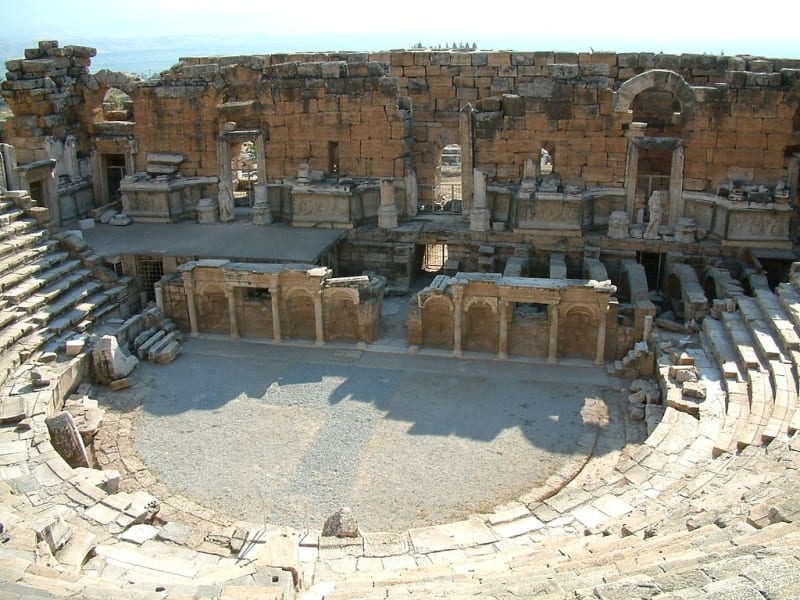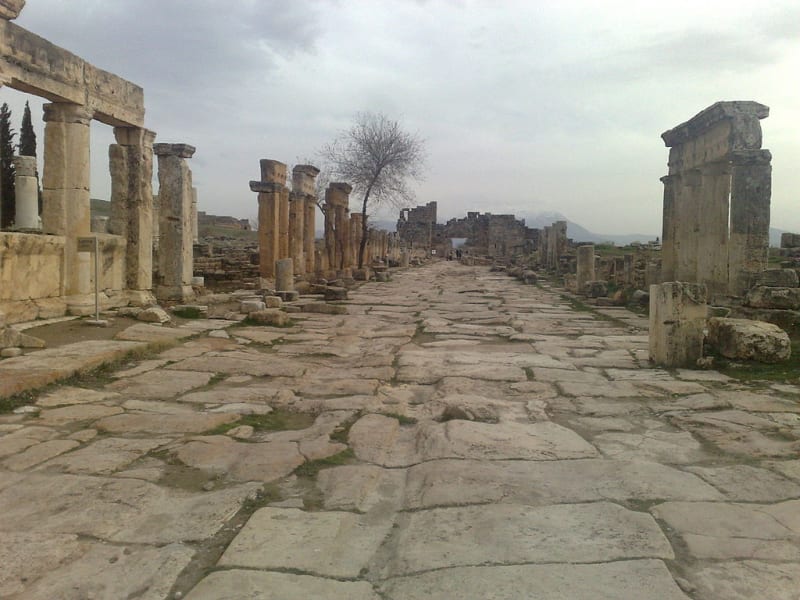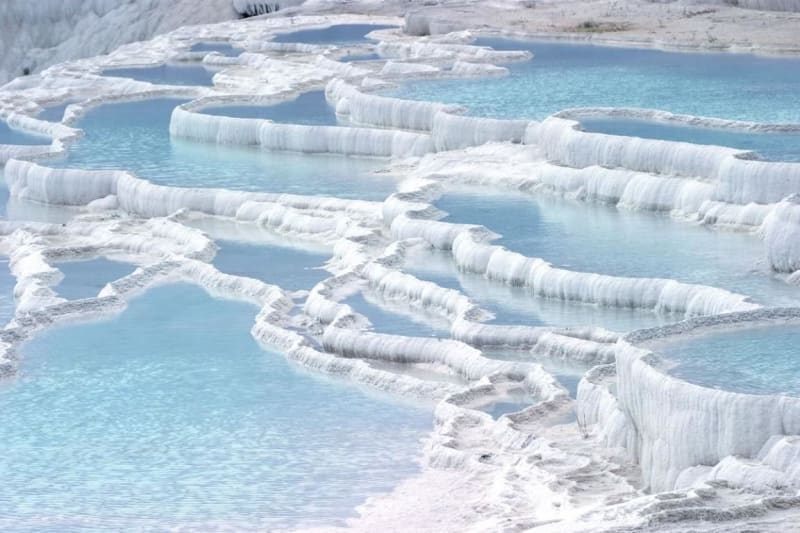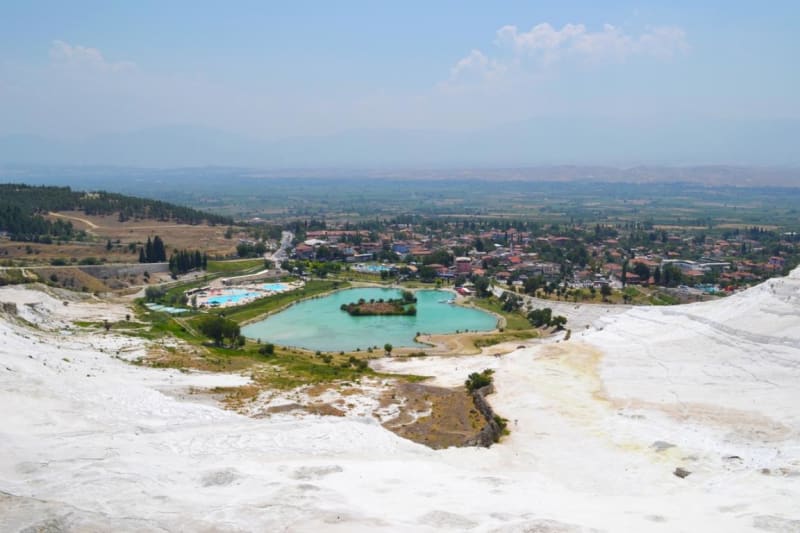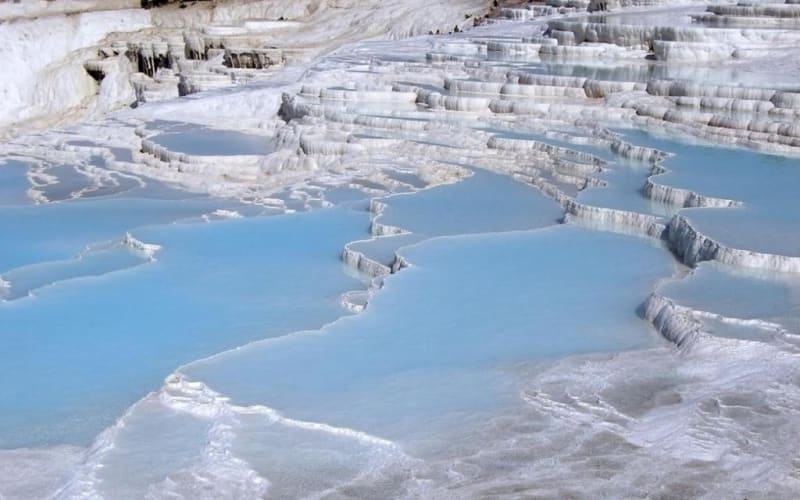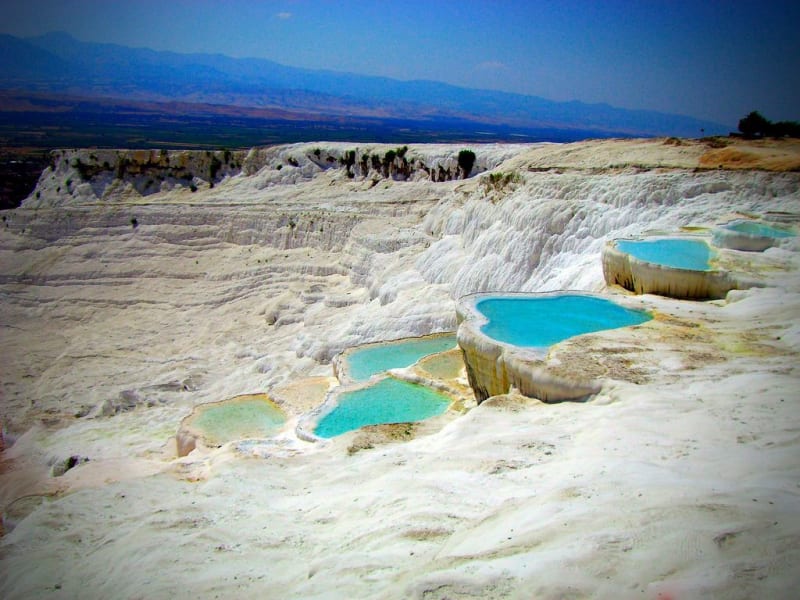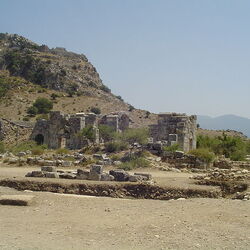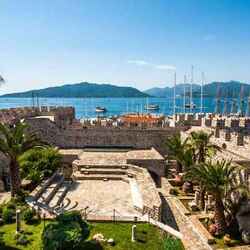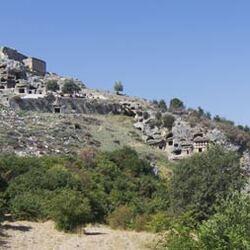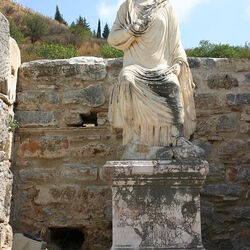Pamukkale
Pamukkale is a popular tourist attraction in Turkey's Denizli province. The name means "Cotton Castle". At its core, it is a concentration of hot springs, which have a high concentration of calcium, thanks to which the local waters have healing properties.
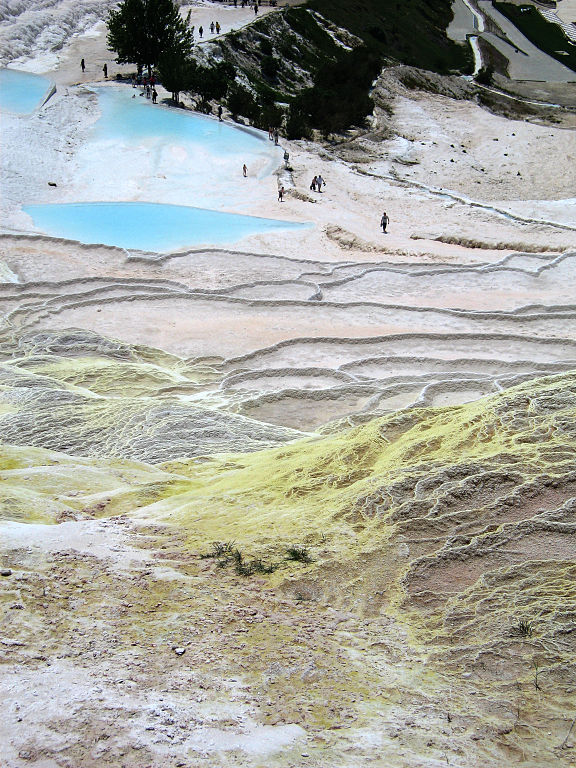
There are 17 hot springs in Pamukkale, and there are also unique ponds and terraces made of limestone. These cascades of reservoirs have been known for at least 400 years and were formed due to the fact that calcium salts flowed from a source on the mountain and gradually settled, forming natural barriers to water. In 1988, this area, as well as the ruins of the ancient city of Hierapolis, were listed as a World Heritage Site. The city was founded about 200 years before our era, and in 1534 it was destroyed by an earthquake. Some of the first buildings on the territory of Hierapolis appeared 2000 years before our era. The city was constantly changing hands, and at various times it was ruled by the Greeks, Romans, Byzantines, and Turks. At one time, there was one of the centers of Christianity here, and St. Philip the Apostle was executed right there. Of the surviving buildings, it is worth noting the Ancient Greek Theater, which has a capacity of more than 15,000 people. In Hierapolis, you can also see the ancient necropolis, the ruins of the temple of Apollo and the tomb of St. Philip.
Although you can only admire the reservoirs (travertines), but this does not stop some tourists. It is forbidden to swim in reservoirs or walk along its edges. For this purpose, the Cleopatra Pool was opened, not far from Hierapolis. This source has been known since ancient times.
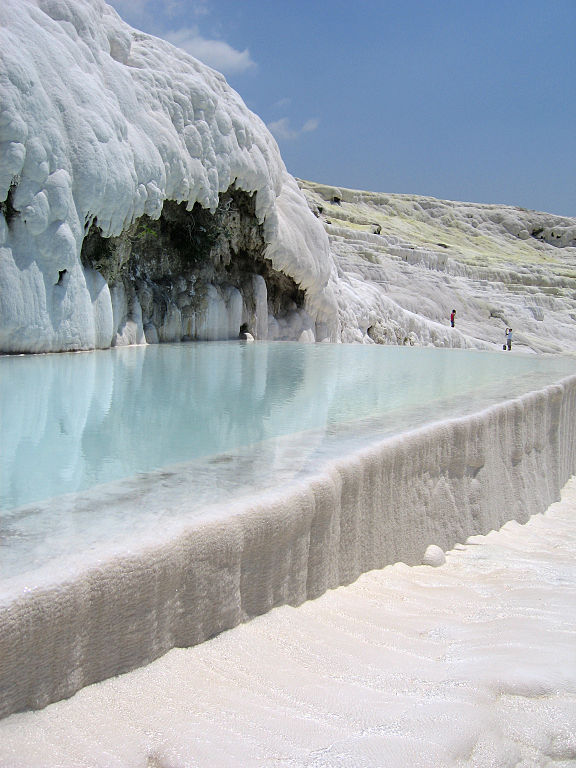
The temperature in the local waters is usually 37 °C. Many modern hotels in Pamukkale have their own mud and hot springs. Among all the springs, Karakhaite stands out, which has a reddish hue of water and a temperature of 60 ° C. Its color is explained by the multitude of dissolved minerals.
Among the sights of Pamukkale, it is also worth noting Chaldag Mountain, from which hot springs have been gushing for hundreds of years. Descending, the water formed many small terraces with ponds. Nowadays, several wellness centers have been opened in Pamukkale, where you can successfully combine rest and treatment.
